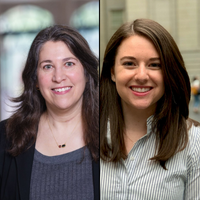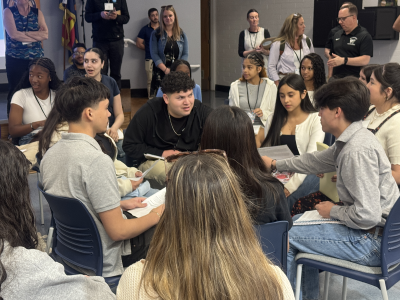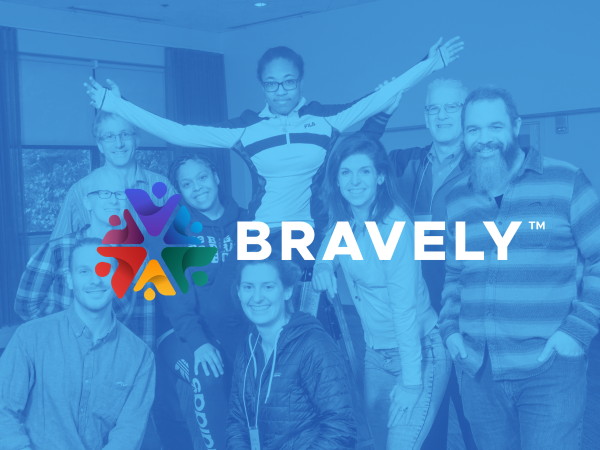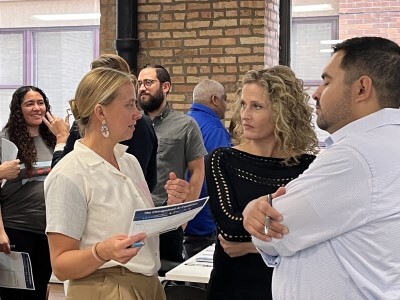Professional Learning
From Classrooms to Campfires: Fostering Educator Growth with Symmetrical Learning Adventures
Topics
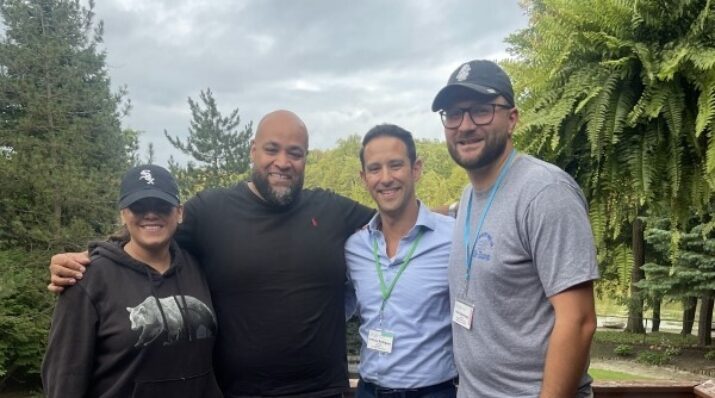
Educators are the lead learners in schools. If they are to enable powerful, authentic, deep learning among their students, they need to live that kind of learning and professional culture themselves. When everyone is part of that experiential through-line, that’s when next generation learning thrives.
A camp for teachers provides immersive professional learning opportunities that mirror the community, agency, and joy of deeper learning for students.
When we think about the schools we are transforming toward, we envision joyful children engaged in purposeful learning. We think of students immersed in work outside of traditional classroom walls, perhaps in nature or in mixed aged cohorts. As we work to transform our schools toward this vision, we face the challenge of inspiring teachers to adopt new ways of teaching that they may have rarely seen or have never experienced. That’s why we believe it is critical to provide educators with opportunities to immerse themselves in the type of holistic and transformational learning that we envision for all of our students.
Meaningful learning opportunities for adults are critical to school transformation efforts. This is central to the work we do at the Deeper Learning Dozen (DLD). DLD co-founder Jal Mehta writes, “If we want teachers to create meaningful learning experiences for students, they need to experience them as adults. We call this symmetry. Adults need opportunities to renew themselves and renew their love of whatever it is that they’re doing and grow those skills. As adults grow, that creates new possibilities for what they want to do with students. We know teaching can be a repetitive activity. Each year you have new students, but you’re teaching the same stuff. If you don’t continue to grow and learn, it’s hard to feel renewed.
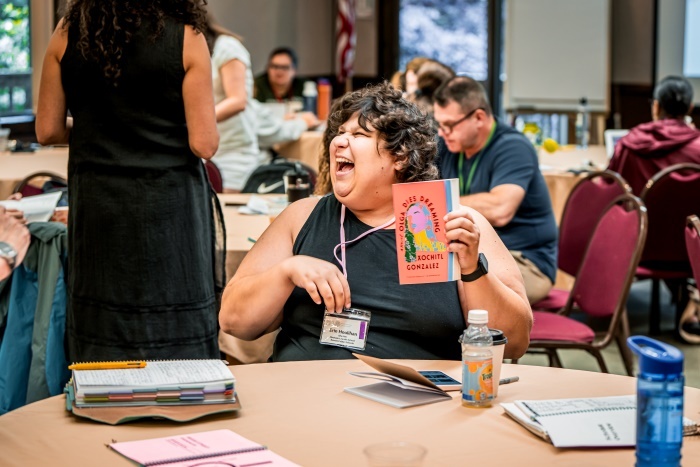
Photo by Isaac DeLeon
Inspired by the need for teachers to have experiences that are aligned with the joyful, purposeful learning experiences that drive the personal development and community connection we imagine for students, the team at the DLD hosted our inaugural “Deeper Learning Ed Camp” in upstate New York this past July. The idea was simple: bring together school-based educators from across the country who have developed a strong teaching practice, but who want to do more in their classrooms and schools to amplify relevance, engagement, and joy and who want to immerse themselves in an experience of what is possible in schooling. Innovative educators need opportunities to both experience what is possible and to reflect with a diverse group of like-minded peers. We wanted to create an off-the-grid, immersive learning experience where such educators could find inspiration, rejuvenation, and connection.
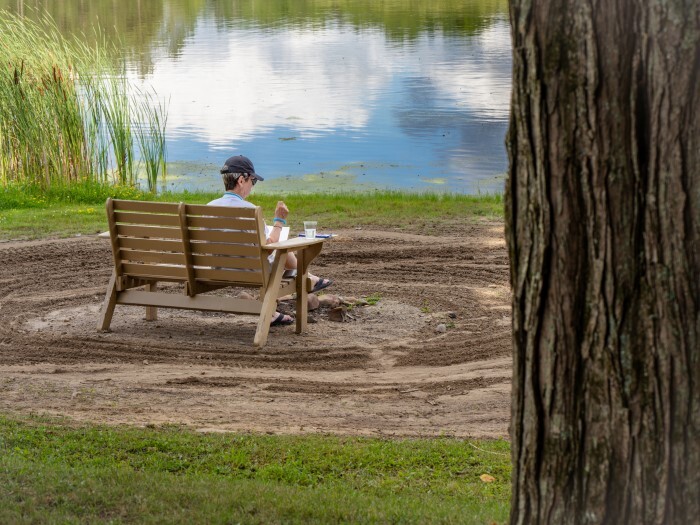
Photo by Isaac DeLeon
If you ever attended summer camp as a child, you are likely familiar with the intangible magic that happens when you take a break from the daily grind of work and responsibilities to enjoy a sense of freedom in a beautiful setting. Camp gives children and adults alike the opportunity to connect with nature, build meaningful friendships, and try new things. In the spirit of symmetry, the camp setting reflected the ideals we wanted to forefront in this learning experience: community, agency, and joy. Beaver Hollow Conference Center, a property on over 300 acres of lakes and scenic woodlands, was a far cry from the typical classroom where many teachers typically experience professional learning. Here are three lessons we learned about creating symmetrical immersive learning opportunities for educators from running EdCamp.
Lesson #1: Give educators the opportunity to find joy in learning something new.
For many adults, it’s been a while since we were students in a classroom. It’s easy to forget what the experience of learning a new skill feels like, how difficult it can be, and what types of scaffolds actually help us on our diverse learning journeys.
For example, one afternoon at EdCamp, four participants headed to the pickleball court, three of them having never picked up a pickleball racquet before. One participant, a middle school math teacher, had been playing pickleball for a year, but she knew her role was not to serve as the “expert.” She saw herself as a peer coach. She explained the basic objectives of the game and then encouraged the group to jump in and start playing. One participant reflected on the surprising way she initially felt self-conscious when making mistakes: “No one wants to look silly in front of their peers. I sometimes forget how hard it is to be a middle schooler who spends most of their brain space focused on not wanting to make a mistake in front of their friends!” Another participant noted the connection she made between learning new skills and the scaffolds students need to help them get there: “I realized the importance of having someone I could ask for help, but who didn’t position themselves as an ‘expert.’ I thought about how often teachers are positioned to simply transmit knowledge, but that’s not how learning works in the real world. I need to get in and play the game if I want to get better.”
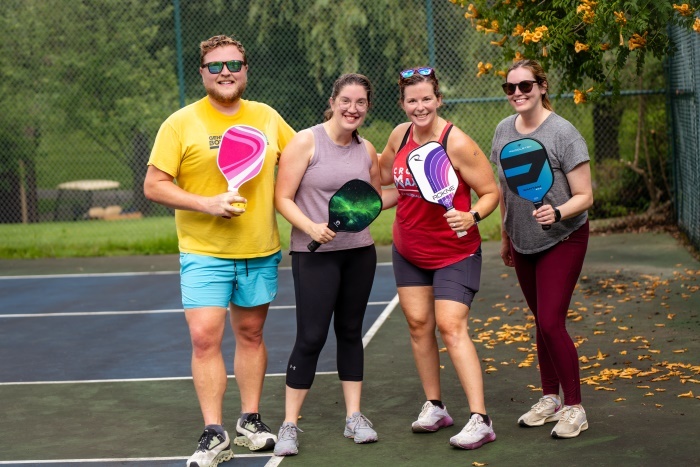
Photo by Isaac DeLeon
After the pickleball game, the group reflected on where and from whom they think their students learn and which of these are prioritized in their classroom. While it was helpful to have a “teacher” there, they also learned from their peers who were just one step ahead of them on the learning curve. And sometimes, they learned by explaining something to a friend. But what accelerated their learning the most was the joy that allowed them to try things, take risks, laugh at their mistakes, and try again. The big take-away was, “How do we create this joyful atmosphere in our classrooms?”
Lesson #2: Embrace cross-pollination to inspire innovation
Our EdCamp included a diverse group of educators. Geographically, they came from Mexico City, Mexico, to Lexington, Kentucky. Their roles ranged from high school AP chemistry teacher to an elementary literacy interventionist, from superintendent to kindergarten teacher.
We were intentional about not wanting to group our educators by grade-level or subject-area—we wanted cross-pollination. Our participants opted into one of three groups based on a self-defined project around which they wanted to make progress: (1) curriculum, (2) school-level structural change, or (3) movement-oriented change (a change that involved changing people’s minds). But they also spent lots of time in random groupings or in groupings by interest. At lunch, we’d hear connections forming organically: “Who wants to go for a walk later?” or “Anybody interested in trying the painting class with me?”
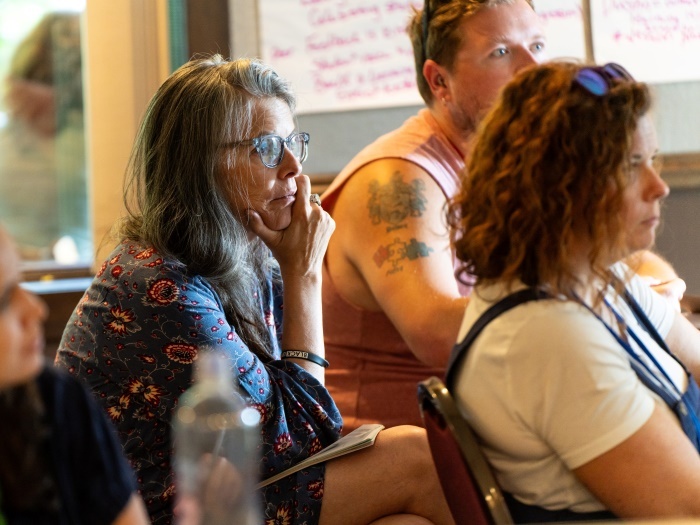
Photo by Isaac DeLeon
The opportunity for teachers and administrators to learn from each other allowed for inspiration and empathy. One high school teacher was inspired by how an elementary teacher used centers in her classrooms. To many elementary teachers, centers are not a new idea, but high school teachers have so few opportunities to learn from teachers across other grade-levels that those ideas don’t have time to filter in. One fifth grade teacher was listening to a superintendent share how he thinks about giving teachers feedback when he does his school walkthroughs. This teacher was able to not only engage with the superintendent on the thought he puts into showing care to teachers during these walkthroughs, but they also shared strategies for giving quick feedback that they have both used with success.
Inspiration is everywhere. We ask our students to be inspired by what is around them, to think creatively, and we know they need new inputs in order to do that. Inspiration comes from engaging authentically with the world around them. The same is true for adults.
Lesson #3: Connection and joy amplify learning.
We wanted our adult learners to have experiences that involved mastery, creativity, and connection, as that is what we are hoping they will create for students. The work participants engaged in was rigorous and authentic. We spent an entire morning in a workshop with Ron Berger, author and senior advisor for EL Education, looking at high quality student work from kindergarten through 12th grade across every content area. We questioned how we think about raising expectations and getting our kids to create high quality work, which is a challenging and high-stakes task. Yet this work was paired with joy, fun, connection, and choice.
For example, after that intense three hour session with Ron Berger, participants had the choice of how they wanted to process their learning. Some went on solo walks on the nature trail, others went canoeing in pairs, and some reflected on their lingering questions in discussion groups. In the evening, around the firepit while roasting s’mores, some of our participants broke out their guitars and led us in song. It is exactly these types of experiences that created the conditions for our participants to experience deeper learning. Creating a space where people felt safe, supported, and seen modeled the types of feelings we want our students and teachers to have every day in their own learning environments at home.
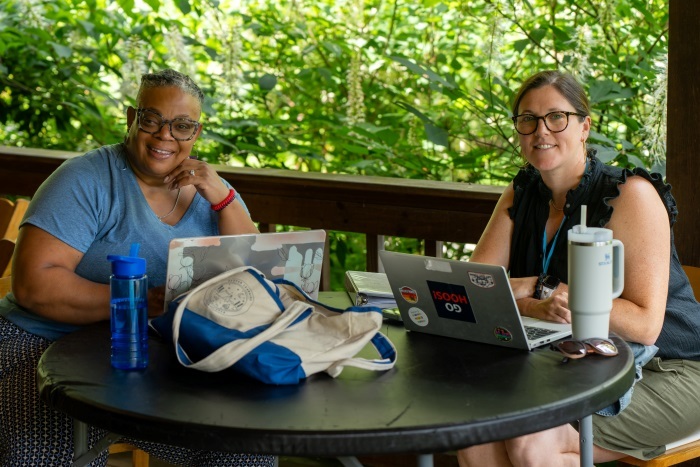
Photo by Isaac DeLeon
As we seek to create schools that are substantially different from the ones we have today, we must radically rethink the way we provide professional learning with educators. Changing adult practices—whether at the teacher, principal, or superintendent level—isn’t an impossible task. Yet it will require us to approach adult learning with an understanding of the power of symmetry: that if we give adults the types of learning experiences we want for students—to experience joy, purpose, and connection as learners—we will enable teachers to better envision in their minds and their hearts the schools we want to create.
Photo at top by Nail Sabanagic.

